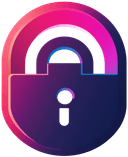Info
Creating secure passwords is crucial for protecting your personal and sensitive information. Here are some guidelines and tips to help you create strong and secure passwords:
LengthLonger is better: Aim for at least 12-16 characters. Longer passwords are generally more secure.
ComplexityMix of character types: Use a combination of uppercase letters, lowercase letters, numbers, and special characters (e.g., @, #, $, %, &, etc.). Avoid predictable patterns: Don't use common substitutions (e.g., "P@ssw0rd"), sequences (e.g., "123456"), or repeated characters.
UnpredictabilityRandomness is key: Use a password generator to create truly random passwords. Avoid dictionary words: Single dictionary words are easily cracked by brute-force attacks.
UniquenessDifferent for each account: Use a unique password for every account to prevent a breach on one site from compromising others.
Password ManagersUse a password manager: Tools like LastPass, 1Password, or Bitwarden can generate, store, and manage your passwords securely. This way, you only need to remember one master password.
Regular UpdatesChange passwords regularly: Especially if you suspect an account has been compromised. Monitor for breaches: Use services like Have I Been Pwned to check if your email or password has been involved in a data breach.
Multi-Factor Authentication (MFA)Multi-factor authentication (MFA) is a security process that requires users to verify their identity using two or more different factors before accessing a system. These factors typically include something the user knows (like a password), something the user has (such as a phone or security token), and something the user is (biometric data like fingerprints or facial recognition). By requiring multiple forms of verification, MFA adds an extra layer of protection against unauthorized access.
Examples of Strong PasswordsRandomly generated: hT7&3z@Q5!mL0xW Passphrases: Create a long and unique phrase using random words or an easy-to-remember sentence with some complexity added. Example: CorrectHorseBatteryStaple!92
Bad Practices to AvoidPersonal Information: Avoid using easily guessable information like your name, birthday, or pet's name. Common Passwords: Do not use passwords like "password," "123456," or "qwerty."
Hardware
Using a two-factor authentication (2FA) security key greatly enhances online security by providing robust protection against phishing and password theft. Unlike SMS or app-based codes, security keys require physical possession, making unauthorized access significantly harder. They are easy to use, work offline, and are compatible with a wide range of devices and platforms. This added layer of security ensures that even if your password is compromised, your accounts remain secure, offering peace of mind and compliance with stringent security standards.
more info
